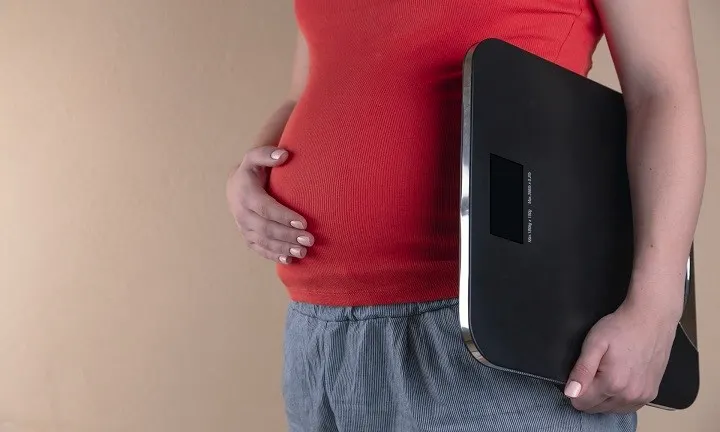What Is Implantation Bleeding and When Does It Occur?
When a fertilized egg attaches to the wall of the uterus, where it can begin growing, some light brown/pink spotting may occur. This is called implantation bleeding, and it can be one of the earliest signs of pregnancy. Some women don’t experience this type of bleeding, and some simply don’t notice it. If it happens, it doesn’t indicate a problem with your pregnancy.
Is It Implantation Bleeding or My Period?
It’s possible to mistake implantation bleeding for a very light and early period at first. However, there are some differences to pay attention to. Although every woman’s period is different, it’s still possible to guess that it's implantation bleeding by the color and amount of bleeding, and by where you are in your menstrual cycle, as well as by looking out for other early signs of pregnancy — more frequent bathroom trips, fatigue, and nausea (i.e. morning sickness).
These are the main signs and symptoms of implantation bleeding compared to a period:
The amount of blood.
Implantation bleeding isn’t heavy; it’s more like a discharge or light spotting that’s about a few drops of blood on your underwear.
The brown discharge.
The blood from implantation is more of a pinkish or brown color, rather than a bright red some women normally see during a period. The spotting can be between the period.
When Does Implantation Bleeding Happen?
You may notice implantation bleeding around 10 to 14 days after conception, when a fertilized egg becomes attached to the lining of your uterus. Keep in mind that conception may not occur on the same day you had sex. Sperm can live as long as five days inside a woman’s reproductive tract, and conception might not occur for several days after sex.
How Long Does Implantation Bleeding Last?
It’s common to wonder how long implantation bleeding can last and if it can last 3 days. The duration of the bleeding can vary; however, it generally lasts from a few hours up to 2 days.
What Does Implantation Bleeding Look Like?
What are the symptoms of implantation bleeding and what does it look and feel like? If you experience this early sign of pregnancy, you could observe the following:
Light bleeding or small drops of blood from the vagina
A brownish discharge or spotting that is brown or pink
Bleeding or spotting that starts around the time your menstrual period usually starts and lasts from a few hours up to about two days.
If you’re concerned about any of your symptoms or you’re unsure whether you’re experiencing implantation bleeding or something else, consult your healthcare provider.
Implantation Bleeding vs. Your Period
It’s quite easy to mistake implantation bleeding for your menstrual period, as it often occurs around the same time that your period would’ve been due. Although every woman’s period is different, there are some differences between implantation bleeding and a period to pay attention to, such as the amount of bleeding, the timing, and the color.
Here are some ways to help you recognize implantation bleeding and tell the difference between your menstrual period and implantation bleeding:
| Implantation Bleeding | Menstrual Period |
| Lasts up to 48 hours | Lasts up to a week |
| Light or spotty bleeding (without clots) | Starts heavy and gradually gets lighter towards the end (can contain clots) |
| Color is brown, dark brown, or with a pink tinge | Color is bright red, pink, or brown |
| Very mild or no cramping | Cramping may start one or two days before bleeding (may occasionally be intense) |
As implantation bleeding is an early symptom of pregnancy, it may also be accompanied or closely followed by other early pregnancy symptoms such as morning sickness, fatigue, or sore breasts
Should I Take a Pregnancy Test During Implantation Bleeding?
You can take a home pregnancy test during implantation bleeding. Keep in mind that the pregnancy hormone human chorionic gonadotropin (or hCG) that pregnancy tests detect only starts being produced in your body the moment the fertilized egg is implanted in the uterus — which is the trigger for implantation bleeding. The earlier you take the test, the less hCG there is to detect, meaning that the test may not yet be accurate. If you have the patience to wait, you’ll get a more accurate test result if you wait until after the first day of your missed period.

If you get a positive test result, schedule an appointment with your healthcare provider to confirm your pregnancy. And you can get an estimate of when to expect your baby by using our handy tool to calculate your due date.
Should I See a Doctor?
Implantation bleeding is generally nothing to be concerned about, but it’s a good idea to talk to your healthcare provider about any bleeding you experience during pregnancy. Although light bleeding in early pregnancy can be totally normal, there are some reasons for bleeding in early pregnancy that need to be addressed immediately. These can include infection, miscarriage, or ectopic pregnancy.
FAQS AT A GLANCE
Yes, but home pregnancy test results are usually more accurate when taken after the first day of your missed period.
The Bottom Line
Implantation bleeding is a normal occurrence that may happen during early pregnancy. When the fertilized egg attaches itself to the lining of your uterus, this may cause light and short-lived bleeding for some women. It can occur anywhere from 10 to 14 days after conception and may last up to two days, though many women may not even notice it. Understanding the signs and causes of implantation bleeding can help you better understand your body and fertility.
From week by week tips on Pregnancy Calendar to baby diapers, Pampers India is here to help you through the amazing journey of parenthood.

